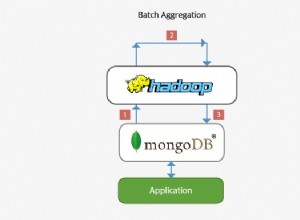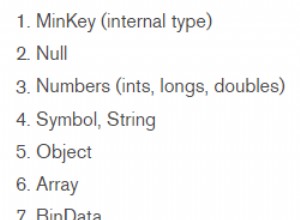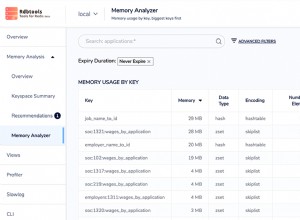Sì, puoi specificare il comportamento di .findOne()
come è meglio mostrato nella documentazione del driver nativo. L'unica differenza è che nell'implementazione della mangusta il documento "opzioni" deve essere il "terzo" argomento passato al metodo.
Quindi puoi fornire una specifica di "ordinamento" come mostrato nelle opzioni disponibili:
Queue.findOne({ },null,{ "sort": { "_id": -1 } },function(err,doc) {
Solo per ulteriori informazioni puoi farlo nella shell MongoDB con quanto segue, usando $orderby
opzione di query:
db.collection.findOne({ "$query": { }, "$orderby": { "_id": -1 } })
Anche il .findOne() il metodo può restituire solo un documento, ma in realtà è solo un wrapper attorno a .find() quindi si applicano tutti i modificatori. Il wrapping chiama semplicemente .next() sul cursore restituito, restituisce il documento e scarta il cursore.
Questo esempio più lungo mostra diversi modi in cui può essere applicato:
var async = require('async'),
mongoose = require('mongoose'),
Schema = mongoose.Schema;
mongoose.connect('mongodb://localhost/sequence');
var queueSchema = new Schema({
name: String,
same: { type: String, default: "same" }
});
var Queue = mongoose.model( "Queue", queueSchema );
var count = 0;
async.series(
[
// Remove any documents
function(callback) {
Queue.remove(function(err) {
if (err) throw err;
callback();
});
},
// Insert some new ones
function(callback) {
async.eachSeries(
["one","two","three"],
function(item,callback) {
var queue = new Queue({ name: item });
queue.save(function(err,doc) {
if (err) throw err;
console.dir(doc);
callback(err,doc);
});
},
function(err) {
callback(err);
}
);
},
function(callback) {
async.whilst(
function() { return count < 2 },
function(callback) {
count++
async.series(
[
// findOne is just the first one
function(callback) {
Queue.findOne({ "same": "same" },function(err,doc) {
if (err) throw err;
console.log( "FindOne:\n%s", doc );
callback();
});
},
// Or is sorted
function(callback) {
Queue.findOne(
{ "same": "same" },
null,
{ "sort": { "_id": -1 } },
function(err,doc) {
if (err) throw err;
console.log("FindOne last:\n%s", doc );
callback();
}
);
},
// find is ordered but not singular
function(callback) {
async.eachSeries(
["first","last"],
function(label,callback) {
var direction = ( label == "first" ) ? 1 : -1;
var query = Queue.find({ "same": "same" })
.sort({ "_id": direction })
.limit(1);
query.exec(function(err,docs) {
if (err) throw err;
console.log( ".find() %s:\n%s", label, docs[0] );
callback();
});
},
function(err) {
callback();
}
);
},
// findAndModify takes a sort
function(callback) {
Queue.findOneAndUpdate(
{ "same": "same" },
{ "$set": { "same": "different" } },
{ "sort": { "_id": -1 } },
function(err,doc) {
if (err) throw err;
console.log( "findOneAndUpdate:\n%s", doc );
callback();
}
);
}
],function(err) {
callback();
}
);
},
function(err) {
callback();
}
);
}
],function(err) {
console.log("done");1
mongoose.disconnect();
}
);




